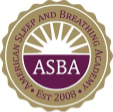The Continuous Positive Airway Pressure is considered the "gold standard" of treatment for patients with sleep apnea and is usually the first choice prescribed by sleep centers for sufferers of obstructive apnea.
The sleep apnea patient must wear a specially designed mask that uses pressure to send air flowing through the nasal passages. The influx of air keeps the throat from collapsing during sleep and allows the patient to breathe freely without worry of episodes of nonbreathing. CPAP also minimizes and even eliminates snoring so your partner can get a better night's rest! Some CPAP appliances also help the patient minimize other effects of apnea, such as nasal dryness, headaches and irritated eyes.
Because the CPAP only creates a temporary solution, patients must wear the mask each night. Dr. Shapira may recommend lifestyle and behavioral changes to minimize the presence of sleep apnea in your life.
Why CPAP Might Not Be Right for You
CPAP is the most common sleep apnea treatment option, but it is also the least tolerated treatment type, so much so that scores of patients have said, "I HATE CPAP!®" Here's why.
 While CPAP is highly successful when used properly, many patients have trouble complying with the directives, leaving only 23% - 45% of patients who have success with the CPAP method. When used as directed, however, the success rate of CPAP is nearly 100%! Unfortunately, CPAP is difficult to stick to, since the device requires the use of a mask over the nose and mouth and must be worn each night. Ideally, it should be worn all night.
While CPAP is highly successful when used properly, many patients have trouble complying with the directives, leaving only 23% - 45% of patients who have success with the CPAP method. When used as directed, however, the success rate of CPAP is nearly 100%! Unfortunately, CPAP is difficult to stick to, since the device requires the use of a mask over the nose and mouth and must be worn each night. Ideally, it should be worn all night.
Unfortunately, many people who use CPAP wear if for 4 hours or less per night. Other CPAP problems include face breakouts from the straps, eye and nasal irritation, mouth dryness, runny nose and sore throat. Patients with allergies, patients who tend to breathe through their mouths, and patients who sleep on their stomachs may find CPAP difficult as well.
An Alternative to CPAP Therapy
Patients who have tried CPAP and found it not to be a good treatment for them frequently benefit from oral appliance therapy. Dr. Shapira will refer patients for CPAP treatment, but does not do so often because of the high rate of treatment failure. He does help patients who must use CPAP with appliances that make CPAP more comfortable.
If you have mild to severe sleep apnea, or snore heavily, call 1-847-533-8313 today. we will help you to identify the sleep apnea treatment that is right for you.






